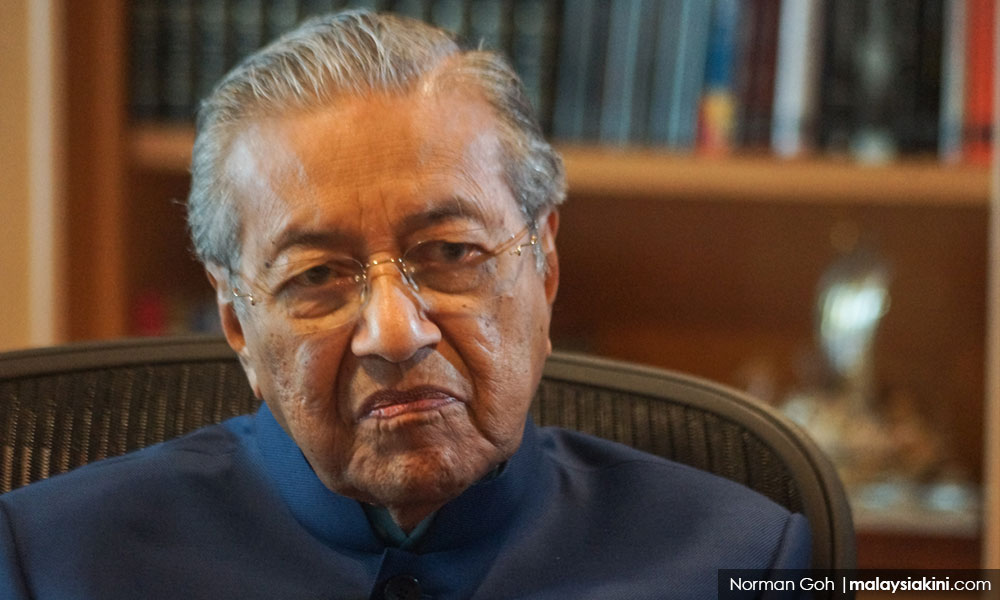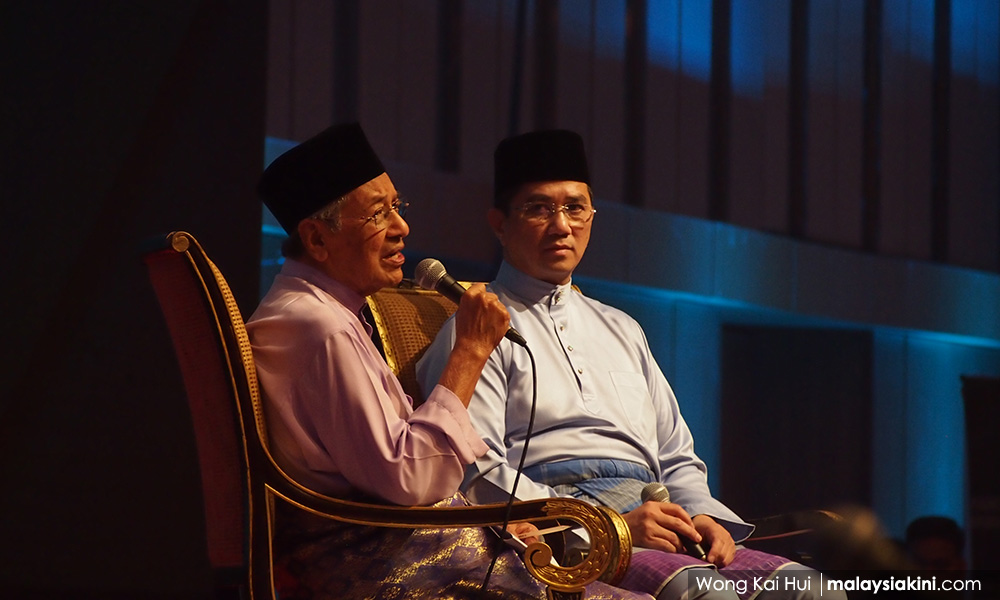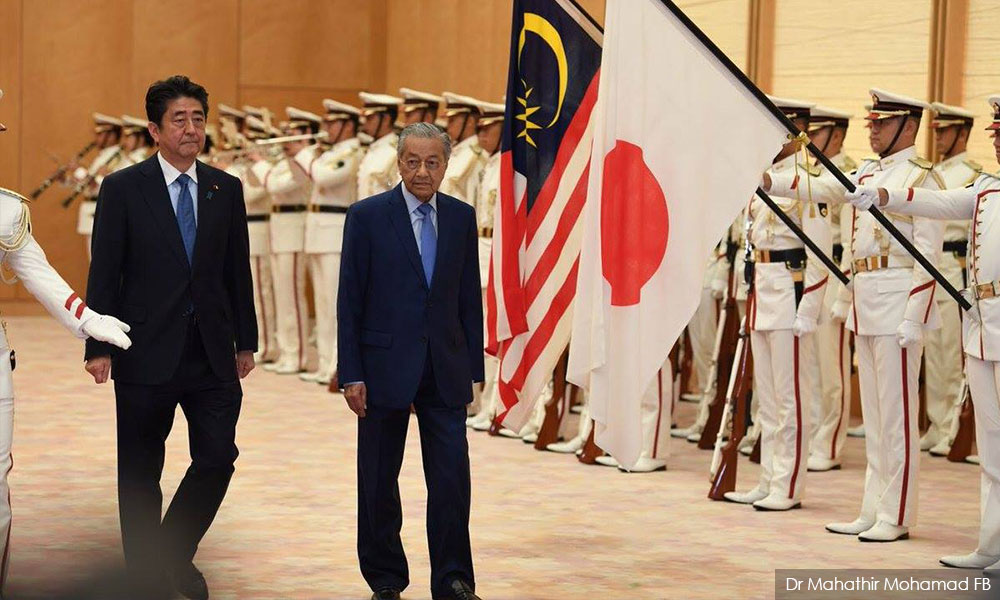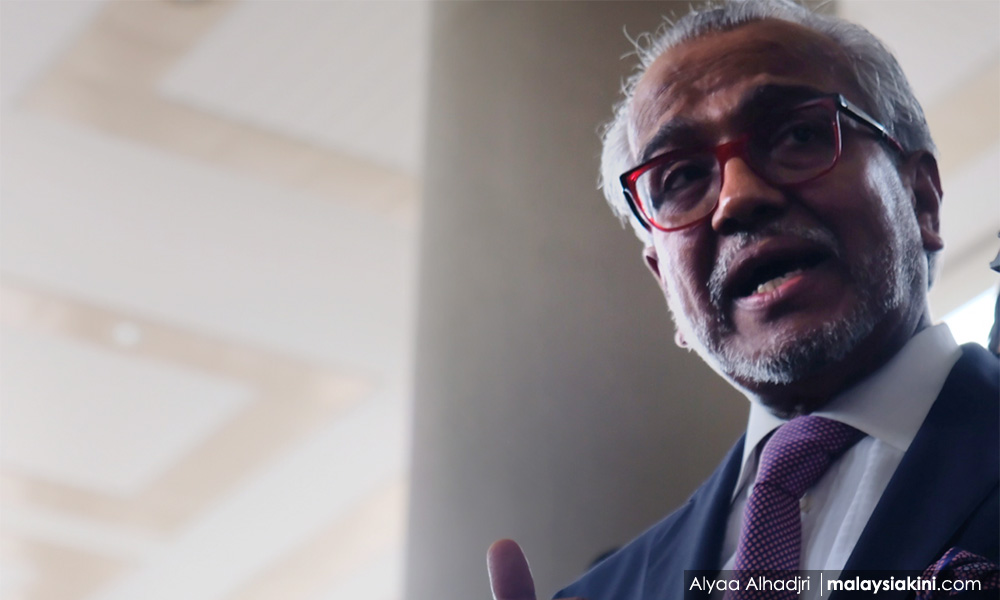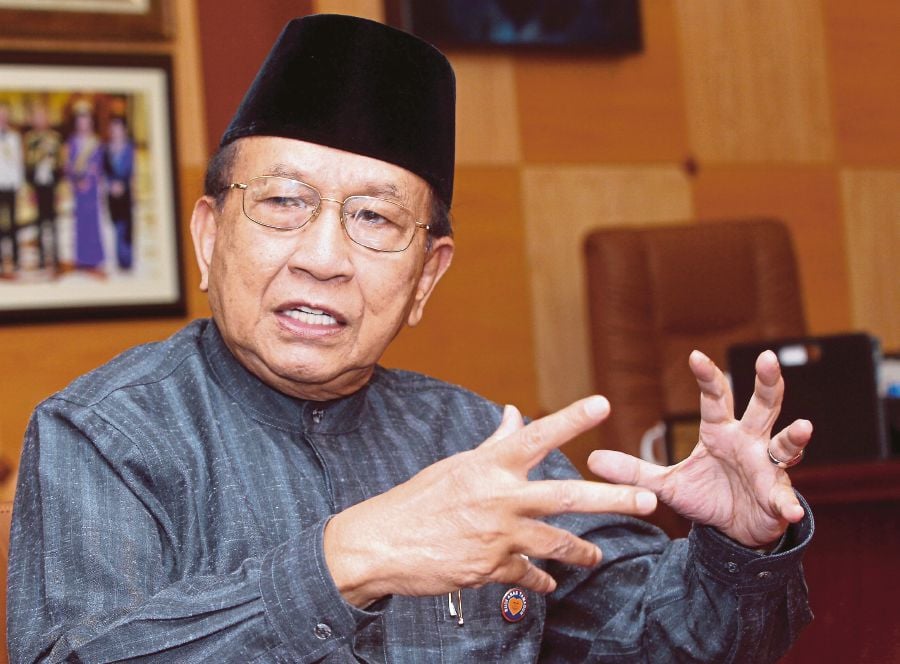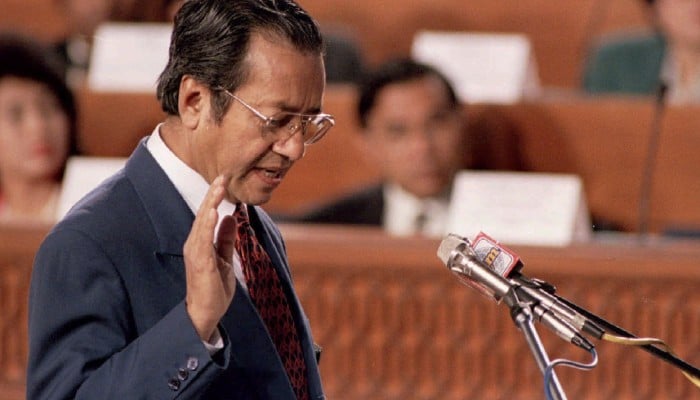September 18, 2018
Malaysia: The Economy is in bad shape. Thank you, UMNO
by Phar Kim Beng@www.malaysiakini.com
Former Prime Minister Najib Razak should be awarded the 2018 Nobel Prize in Economics for his management of the Malaysian Economy. He pioneered the 1MDB method of robbing the Malaysian Treasury.
COMMENT | The Malaysian economy is in bad shape. Very bad.
Revisiting the 2014 magnum opus of the Prime Minister’s new Economic Advisor Dr. Muhammed Abdul Khalid, The Colour of Inequality: Ethnicity, Class, Income and Wealth in Malaysia, we see that Malaysia’s income gap has not changed much from 1957 levels, when the country first gained independence.
Between 1990 and 2018, Malaysians on the whole gained little, except the very rich. Muhammed describes a small breakthrough in 2012, but there is no telling if this was due to fiscal spending to ward off the effects of the 2007-2008 global financial crisis.
Muhammed’s reliance on the Statistics Department’s Household Income Survey, while illuminating, is not entirely convincing, especially when paired with numbers or assertions culled from Pemandu, the now-defunct government-funded performance delivery unit.
In other words, the actual picture of the Malaysian economy could be worse than what Muhammed actually describes.
Income from the manufacturing sector, for example, has been on the decline, which may be due to the over-reliance on cheap foreign labour – with an estimated 5.5 million migrant workers in the country – which further depresses the cycle of Malaysian wages.
Indeed, Muhammed correctly notes that “90 percent of each ethnic group does not have any liquid savings, and would not be able to survive more than few months in case they lose their source of income or employment”.
Ticking time bomb
This is not a very pleasant picture, even if it is colour blind. Why? The danger lies in the ticking time bomb that cuts across all races and groups. When the income chasm widens, people tend to blame one another for their problems, which in turn accentuates social, political, religious and racial tensions.
While democracy can ameliorate the tensions, it cannot overcome them completely. What democracy cannot structurally and systematically solve, groups of all religious and ideological fancies might rise to plug the policy gaps. When they do so, inter- and intra-ideological or religious pressures will only become more acute.
When political parties refuse to have elections, or postpone them indefinitely, they become blindsided by what the people want, which in turn hastens their own demise, as witnessed with Umno and BN.
Knowingly or unknowingly, as the book was completed well before the May 9 polls in which a kleptocracy was defeated, the above was one of the key takeaways of Muhammed’s simple but sophisticated book.
A bad economy will skew a political party’s fate, even if it well-larded with cash, corruption and connections. Reading the book now, after the 14th general election, it almost seems like a eulogy to UMNO-BN.
Barely a trickle
But The Colour of Inequality is also a sad indictment of how politicians and corporate leaders have steered the mighty Malaysian ship aground.
As Muhammed (photo, below) notes, most companies simply refuse to pay their workers well. When they don’t, and with less than nine percent of workers unionised, the bargaining power of the workers is overwhelmingly diminished, leaving them to the mercy of their corporate masters.
If the book is anything go by, the whole of Malaysia is sputtering to a halt – despite a GDP that “grew from RM5.1 billion in 1957 to RM1 trillion in 2012”. With the national debt now standing at RM1.09 trillion, Malaysia is caught in the vice-like middle-income trap.
The infamous trickle-down economics, for the lack of a better term, is not just non-existent here; wealth seems to be flowing upwards. Given when it was written, The Colour of Inequality references the Occupy Wall Street, where the 99 percent were trying, seemingly in vain, to challenge the grip of the exalted one percent.
In any case, widespread disempowerment is a phenomenon that should not be happening if the state and the market, as is the case in Malaysia, have vouched to work in tandem to help the poor – as reflected in the National Economic Policy and its derivatives.
But although Malaysia as a whole was becoming richer, the income differentials of Malaysians is growing wider. The lethal brew of myriad income determinants and gangly systems of income distribution have conspired to render the middle and working classes disempowered.
As Muhammed puts it: “(As of 2012), the top 20 percent held more than 52.1 percent of all wealth, while the bottom 40 percent held less than eight percent. The distribution of liquid assets was very extreme – the top 20 percent had 95 percent of all financial wealth, while the bottom 80 percent had only five percent.”This shouldn’t be happening
This process of emasculation should not be happening. Especially not after 61 years of independence.
In 1958, there were only 3,000 Malay taxpayers out of the overall of 33,000 taxpayers. A decade later, of the 1,488 students in Universiti Malaya – the only university in the country at the time – who graduated with a BSc, only 69 were Malays. Only four of the 408 who graduated with an engineering degree were Malays.
“During the same period,” Muhammed adds, “only 12 Malays graduated from the medical faculty, representing less than 10 percent of the total medical faculty graduates.”
But while the number of Malay graduates, technocrats and universities between 1970-2018 have risen dramatically, the chasm between rich and poor continues to stay the same, if not widened.
Statistics from the Employees Provident Fund (EPF) show that 92 percent of the people are earning less than RM 6,000 a month; four out of 10 Malaysians have no pensions at all; close to 40 percent earn less than RM3,000 per month; 25 percent of Malaysians have no properties to their names; and the money that pilgrims save for the hajj is spent entirely on the hajj, leaving their children with nothing to draw on.
Muhammed adds that it is “estimated that there were only 150,000 inter (-racial) marriages in Malaysia, a small figure in a population of 28 million”. Wealth, or, the lack of it, tends to have the same clustering effects in one group and one race.
An epilogue
One thing that Muhammed does not address at length is the extent to which the state can compel GLCs and GLICs to remunerate their workers well, or at least put a cap on the salary differentials between those at the top and the workers at the bottom.
Additionally, in the aftermath of the financial crisis and Occupy Wall Street, the honeycomb, gig, platform and sharing economy has emerged. If more people put their minds together, more bottom-up solutions – as manifested by Uber, Grab, Air BnB and other forms of electronic commerce – can and will emerge.
But are Malaysians ready for this, beyond the template of the digital free trade zone offered by Alibaba? Or will the proverbial cheese of Malaysians once again be consumed wholesale by a flood of new migrants from China, India and the rest of the world?
Come what may, Malaysians have to work together and understand the structural and systemic reforms that are needed beyond the mere creation of a few digital unicorns.
They need to empower themselves through education, especially online education, even if this involves disciplining themselves to start taking self-enrichment courses – including learning management systems such as edX or Class Central.
If anyone is in need of more inspiration, Muhammed’s book is the best place to start.
The Colour of Inequality, if not redressed, will lead to the panic of inequality, in which only the paranoid will survive. Especially because it is only another 20 years or so before Malaysia starts greying, a process that took European societies a century to experience.
PHAR KIM BENG was a multiple award-winning Head Teaching Fellow on China and Cultural Revolution in Harvard University.
The views expressed here are those of the author/contributor and do not necessarily represent the views of Malaysiakini.


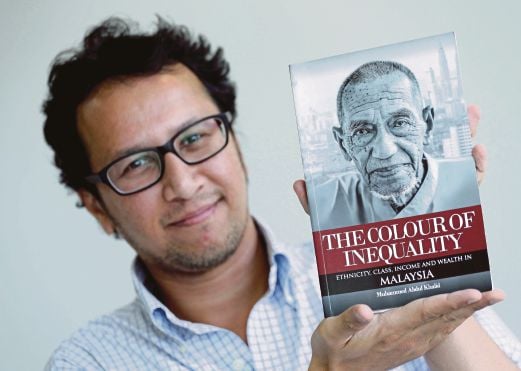


.jpg)



